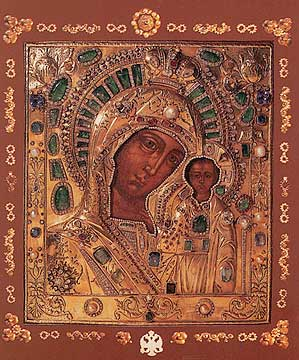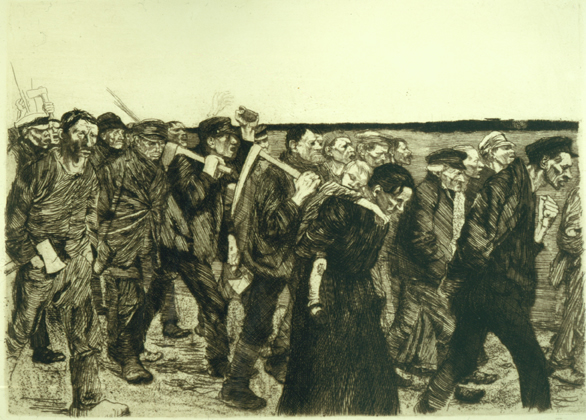by iampunha | 7/08/2008 08:00:00 AM
The results here told me that I am not alone in tiring of the political cycle. FISA this, Iraq that, health care, which candidate the terrorists want to win (the other guy), whose change you can believe in.
And even outside the political cycle, we have the news of yesterday, the racism (as evidenced by recent entries of mine) and enshrined favoritism we are still undoing.
Here, then, is your oasis, your permission to care about something else. For art does not discriminate. It just is.
For peace, beauty and the freedom to pursue art in all its forms.
"But iampunha," you say, "why 'Ah, Bach'?"
-"Love Story,", a M*A*S*H episode, invoked entirely appropriately in a discussion on the flu.
1) Because you will become more culturally aware if you read these entries.
2) Because that's a pretty funny/touching episode.
3) Because more than a few people who get their culture on do so because they want to look smart. Knowing a title here and a name there can make you look smart in turn. (And being able to pull an obscure name never hurt anyone.)
So. Here is some art for you.
First, the backdrop:
In honor of Artemesia Gentileschi's birthday (July 8, 1593), lots of art, from Gentileschi and others.
In honor of Our Lady of Kazan, discovered on this date in 1579, the lady herself:

(Image courtesy of the Seattle archdiocese)
For your reading pleasure, part of a rather long (not sure it's epic proper, but it's long enough to be) poem by Jean de la Fontaine, born today in 1621:
From Käthe Kollwitz, born today in 1867, we have many depictions of life and toil for the working class in Germany, particularly this one:

(Image courtesy of the Oklahoma City Museum of Art.)
Billy Eckstine (July 8, 1914), a marvelous voice lost amid the sonic boom, so to speak, of the 1950s to 1970s:
And "Prelude," by Richard Aldington (July 8, 1892):
And even outside the political cycle, we have the news of yesterday, the racism (as evidenced by recent entries of mine) and enshrined favoritism we are still undoing.
Here, then, is your oasis, your permission to care about something else. For art does not discriminate. It just is.
For peace, beauty and the freedom to pursue art in all its forms.
"But iampunha," you say, "why 'Ah, Bach'?"
Nurse Anderson: I'll tell you how I feel about Tolstoy.
Radar: That's highly significant.
Anderson: I haven't said anything yet!
Radar: That's okay, I have confidence in you, lieutenant.
Anderson: And of course I never travel anywhere without good old Johann Sebastian.
Rader, after a confused pause: Ah! Bach!
Anderson: What does that mean, 'Ah, Bach'?
Radar: Uh, just that. Ah, Bach!
Hawkeye: I think once you've said that you've said it all.
-"Love Story,", a M*A*S*H episode, invoked entirely appropriately in a discussion on the flu.
1) Because you will become more culturally aware if you read these entries.
2) Because that's a pretty funny/touching episode.
3) Because more than a few people who get their culture on do so because they want to look smart. Knowing a title here and a name there can make you look smart in turn. (And being able to pull an obscure name never hurt anyone.)
So. Here is some art for you.
First, the backdrop:
In honor of Artemesia Gentileschi's birthday (July 8, 1593), lots of art, from Gentileschi and others.
In honor of Our Lady of Kazan, discovered on this date in 1579, the lady herself:

(Image courtesy of the Seattle archdiocese)
For your reading pleasure, part of a rather long (not sure it's epic proper, but it's long enough to be) poem by Jean de la Fontaine, born today in 1621:
IN Lombardy's fair land, in days of yore,
Once dwelt a prince, of youthful charms, a store;
Each FAIR, with anxious look, his favours sought,
And ev'ry heart within his net was caught.
Quite proud of beauteous form and smart address,
In which the world was led to acquiesce,
He cried one day, while ALL attention paid,
I'll bet a million, Nature never made
Beneath the sun, another man like me,
Whose symmetry with mine can well agree.
If such exist, and here will come, I swear
I'll show him ev'ry lib'ral princely care.
From Käthe Kollwitz, born today in 1867, we have many depictions of life and toil for the working class in Germany, particularly this one:

(Image courtesy of the Oklahoma City Museum of Art.)
Billy Eckstine (July 8, 1914), a marvelous voice lost amid the sonic boom, so to speak, of the 1950s to 1970s:
And "Prelude," by Richard Aldington (July 8, 1892):
How could I love you more?
I would give up
Even that beauty I have loved too well
That I might love you better.
Alas, how poor the gifts that lovers give
I can but give you of my flesh and strength,
I can but give you these few passing days
And passionate words that, since our speech began,
All lovers whisper in all ladies' ears.
I try to think of some one lovely gift
No lover yet in all the world has found;
I think: If the cold sombre gods
Were hot with love as I am
Could they not endow you with a star
And fix bright youth for ever in your limbs?
Could they not give you all things that I lack?
You should have loved a god; I am but dust.
Yet no god loves as loves this poor frail dust.
Labels: iampunha






Artemesia Gentileschi is a great teaching tool for Western Civ classes. You can use her painting of "Judith Slaying Holofernes" and Caravaggio's painting of the same subject, in the context of Gentileshi's rape as a younger woman. The difference in body language between the two paintings is telling.
Same with her painting of Susannah and the Elders.